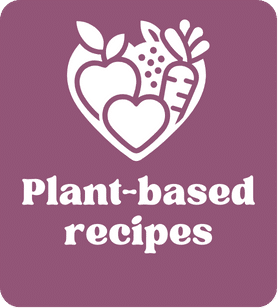
In this article you’ll learn about:
If you read my blog, Should You Worry About Parasites, you know different parasites affect the human body differently, but not all parasites are bad. Parasitic infection impacts approximately 3.5 billion people worldwide (1). Of course, if you happen to have a parasitic infection that does require treatment, the go-to pharmaceutical would likely be Ivermectin. If you are on the fence about the safety of ivermectin, check out my blog, The Truth About Ivermectin.
As someone who has had a parasitic infection that required treatment as a teenager, I recommend taking the gentler approach — antiparasitic herbs.
An antiparasitic property is when a substance can kill, repel, or remove parasites (2). A form of antiparasitic is anthelmintic, meaning a substance that can destroy parasitic worms, much like ivermectin (3). When most people think of antiparasitic herbs, what comes to mind are wormwood and black walnut. Although these two herbs are amazing antiparasitics, they’re a bit harsh for children, so I wanted to share five herbs everyone can use.
Calendula
Thanks to its antibacterial, antiviral, antifungal, and wound-healing properties, calendula has been used internally and topically for centuries to heal wounds, burns, and rashes. Some of these properties are why calendula is also a great antiparasitic. Older studies demonstrate calendula inhibits the development of L3 Heligmosomoides polygyrus larvae (3). More recent studies show calendula affects the characteristics of Heligmosomoides polygyrus bakerndi L3 proteins (4).
To learn more, check out my blog, Benefits of Calendula.
Cloves
Cloves are probably most popular for their ability to soothe mouth pain, but it’s so much more than that. Clove has insecticidal and anthelmintic properties. Clove’s antibacterial, antifungal, and insecticidal properties are why it’s often used as a pesticide and fungicide in drugs and cosmetics (5).
Of course, you’re not here for the insecticidal properties but for the anthelmintic properties. In studies, clove flower oil demonstrated anthelmintic activity (6). For example, in animal studies, clove decreased the number of excreted nematode eggs per gram of feces by an average of 40.6% in naturally infected ewes in farm conditions (7).
To learn more, check out my blog, Benefits of Cloves.

Coconut Oil
Although coconut oil technically isn’t an herb, I felt this needed to be discussed since it’s easily accessible in almost any supermarket. In studies, the overall coconut plant inhibited the growth of parasites responsible for the most deadly form of human malaria, P. falciparum, to at least half that of the controls (8). These benefits likely stem from their medium-chain, saturated fatty acids (MCSFAs) content, which possesses antimicrobial and antiparasitic properties (9).
Garlic
Garlic is probably one of the most commonly used cooking spices and happens to be antiparasitic. One study found garlic to kill the copepod parasite L. kroyeri obtained from European sea bass (10). Another study confirms that the sulfur-containing compounds in garlic effectively kill parasites like Trypanosoma brucei trypanothione reductase and Leishmania tarentolae (11).
Pumpkin Seeds
Pumpkin seeds are often roasted and enjoyed as a snack, but they also have health benefits like destroying parasitic worms. Several human and animal studies have demonstrated pumpkin seeds possess anthelmintic properties (12,13,14). One study concluded that naturally occurring compounds in plants, like pumpkin seeds, constitute an alternative to synthetic anthelmintics (15). In the previously mentioned ewe study, pumpkin seed was also tested and performed better than cloves, with a 52.9% average decrease of excreted nematode eggs per gram of feces (7).
To learn more, check out my blog, Benefits of Pumpkin Seed.
When I don’t have time to incorporate antiparasitic herbs, I use MaryRuth’s Organic Pumpkin Seed Oil Liquid Drops, which are easy-to-take drops rich in beneficial nutrients, such as essential fatty acids and antiparasitic properties to encourage the growth of good bacteria and support gut health for better wellness. I also recommend checking out The Brother’s Apothecary’s Gut Health Bundle!
How to Join The Holistic Hipppie Community & Connect
If you’d like to join a welcoming online community dedicated to making more mindful decisions surrounding holistic alternative approaches with a growing database of natural health resources, I invite you to join our Facebook group, The Holistic Hipppie Community. Looking for a more personalized connection? Feel free to follow me on social media, where I post my holistic health journey in real time.
📧 Subscribe to my email list to get wellness tips, printable resources, nourishing recipes, and occasional updates delivered straight to your inbox!
















Leave a Reply